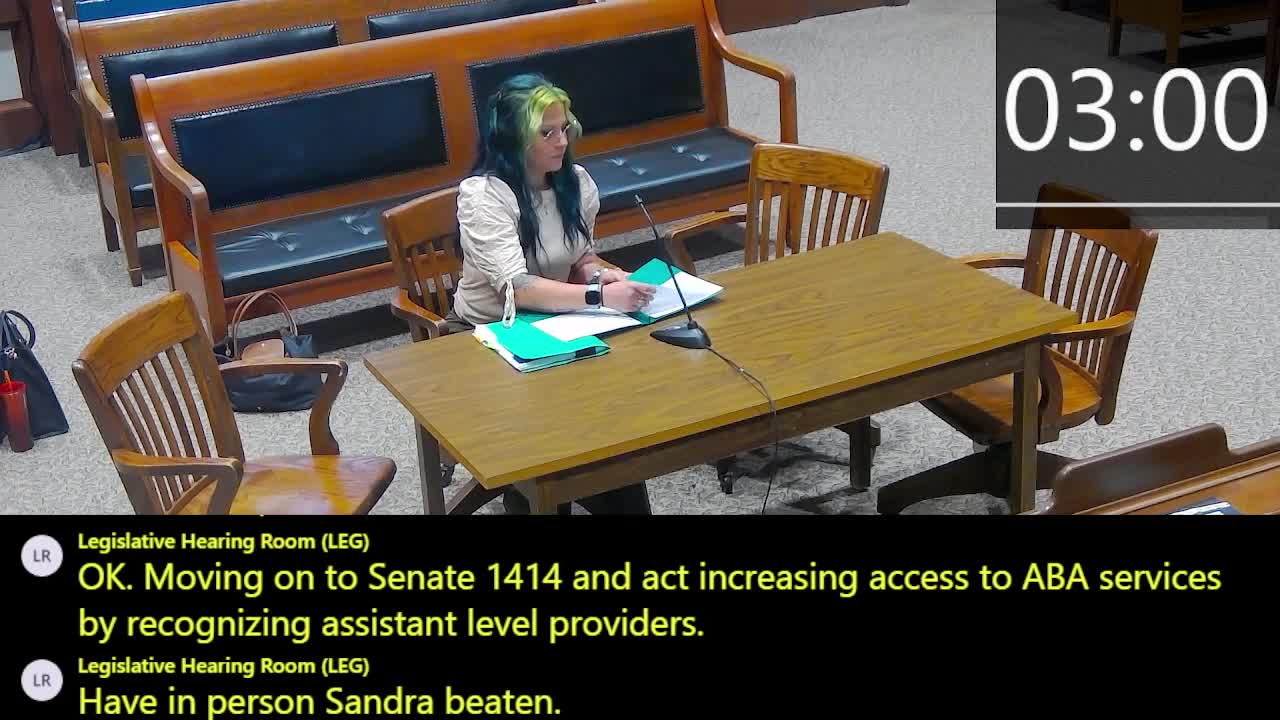Behavior analysts and schools back recognizing assistant‑level ABA providers to reduce wait lists
September 29, 2025 | 2025 Legislature MA, Massachusetts
This article was created by AI summarizing key points discussed. AI makes mistakes, so for full details and context, please refer to the video of the full meeting. Please report any errors so we can fix them. Report an error »

Clinicians, education partners and an actuarial consultant told the Joint Committee on Public Health that Senate Bill 1414 would expand access to applied behavior analysis (ABA) services by recognizing assistant‑level providers for MassHealth reimbursement.
Dr. Sandra Beaton, a behavior analyst with 22 years’ experience, said families face long waits: “Last Bridal, a family from Brockton called my office asking about where their 5 year old was on our wait list. They've already waited 10 months.” She said incorporating assistant‑level providers under supervision could immediately serve more families: “If this bill passed, we could immediately support another 4 to 8 families from our wait list.”
Jessica Thompson, a director of education partnerships who works with school districts, said assistant providers allow districts to expand services without lowering quality, comparing the approach to existing assistant roles in speech and occupational therapy. She said the model provides more frequent coaching and supervision.
An actuarial analysis presented by Annie Tasman Ewing estimated a three‑tier model (BCBA, mid‑tier assistant, and RBT) could reduce MassHealth spending per child by up to 6 percent, which the witness translated into an $11.5 million upper‑bound savings for fiscal year 2023 under modeled assumptions. The actuary explained the estimate rests on shifting some BCBA hours to less‑costly mid‑tier providers, using California’s experience as a comparison.
Witnesses urged a favorable report and asked MassHealth to adopt reimbursement rules recognizing the existing assistant license so employers can hire and train mid‑tier clinicians; committee members did not vote during the hearing.
Dr. Sandra Beaton, a behavior analyst with 22 years’ experience, said families face long waits: “Last Bridal, a family from Brockton called my office asking about where their 5 year old was on our wait list. They've already waited 10 months.” She said incorporating assistant‑level providers under supervision could immediately serve more families: “If this bill passed, we could immediately support another 4 to 8 families from our wait list.”
Jessica Thompson, a director of education partnerships who works with school districts, said assistant providers allow districts to expand services without lowering quality, comparing the approach to existing assistant roles in speech and occupational therapy. She said the model provides more frequent coaching and supervision.
An actuarial analysis presented by Annie Tasman Ewing estimated a three‑tier model (BCBA, mid‑tier assistant, and RBT) could reduce MassHealth spending per child by up to 6 percent, which the witness translated into an $11.5 million upper‑bound savings for fiscal year 2023 under modeled assumptions. The actuary explained the estimate rests on shifting some BCBA hours to less‑costly mid‑tier providers, using California’s experience as a comparison.
Witnesses urged a favorable report and asked MassHealth to adopt reimbursement rules recognizing the existing assistant license so employers can hire and train mid‑tier clinicians; committee members did not vote during the hearing.
View full meeting
This article is based on a recent meeting—watch the full video and explore the complete transcript for deeper insights into the discussion.
View full meeting
